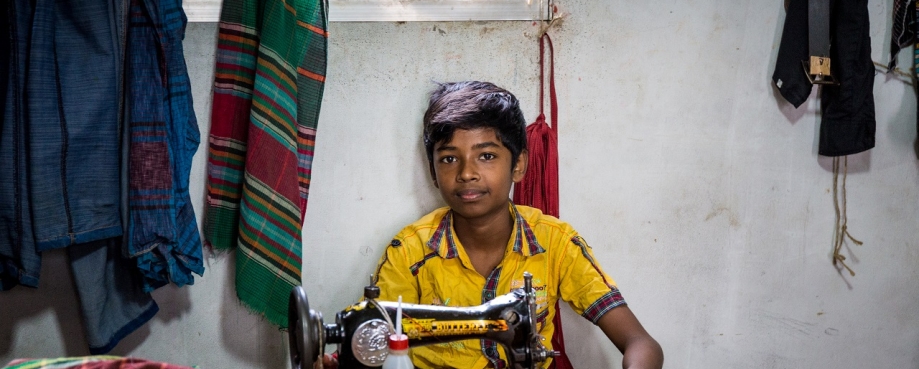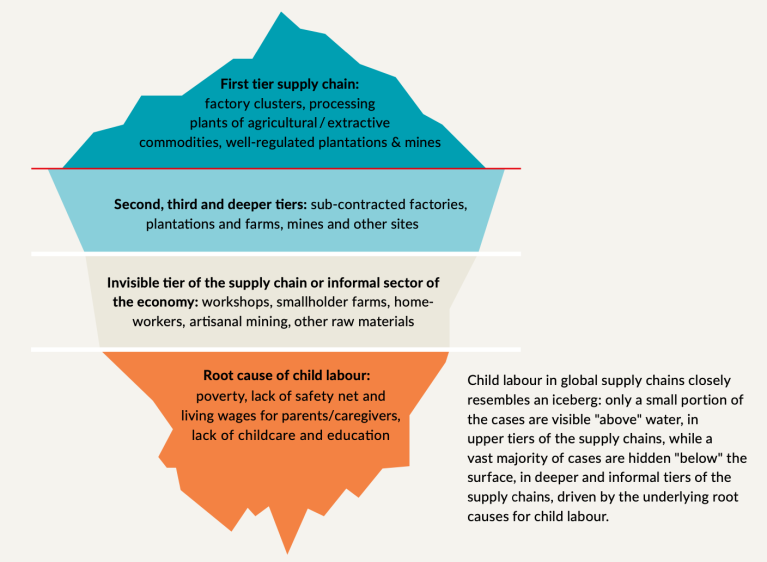
World Day Against Child Labour is an opportunity for us all to reflect on the progress we have made in addressing child labour risks within global supply chains. The Centre for Child Rights and Business (The Centre) and Save the Children Germany have conducted a child rights in supply chains meta-analysis study which reveals widespread prevalence of child labour.
Our study, "Child Rights Risks in Global Supply Chains: Why a ‘Zero Tolerance’ Approach is not Enough", evaluates 20 child rights risk assessments conducted in international supply chains. Despite adopting a zero-tolerance approach, child labour was found in half of the assessed chains. Eight of the remaining 10 assessments show a very high risk of child labour, with the mining sector, particularly artisanal and small-scale mining, exhibiting the most severe cases.
We analysed 20 supply chain child rights risk assessments conducted between 2019 and 2022 to shed light on risk factors and business practices within the manufacturing, agriculture, and mining industries in Ethiopia, Brazil, India, Indonesia, Sri Lanka, Vietnam, Türkiye, and the Democratic Republic of Congo. These assessments involved interviews with 2,750 parents, 1,800 children, and discussions with relevant stakeholders in supply chains and communities.
The study reveals that most child labour cases remain hidden “below the surface” in deeper tiers of global supply chains and informal sectors of the economy. Importantly, we found that the monitoring mechanisms commonly used by companies often only lead to the redistribution of child labour, rather than its complete elimination.
Insufficient parental income and high education costs significantly contributes to the increased risk of child labour across all sectors. A lack of formalisation acts as a multiplier of child rights risks, particularly in informal work settings characterised by low wages, inadequate social security coverage, and a lack of health, and safety protections.
The exclusion of young workers under the age of 18 from the formal sector poses a growing danger, pushing youth into hazardous work in less regulated sectors, even if they have reached the national minimum working age. This unfortunate reality is often a consequence of zero-tolerance policies adopted by many international companies. The study also highlights how corporate practices such as aggressive pricing structures, unrealistic turnover times, and unpredictable order volumes further intensify the risk of child labour.
Our study reveals that the clothes we wear, the phones we use, and the food and drink we consume may come at the expense of children. Many of the workers involved in producing items ranging from coffee to batteries, which we rely on daily, struggle to support their children’s education with their meagre wages, thereby forcing their children to work.
In addition to assessing child labour risks, our study provides recommendations for companies to identify and address child rights violations within global supply chains. We emphasise the urgent need for greater action from companies and other stakeholders to address child rights issues in these supply chains. It is our hope that this study will inspire ETI members and others to accelerate and intensify efforts to address child labour.

